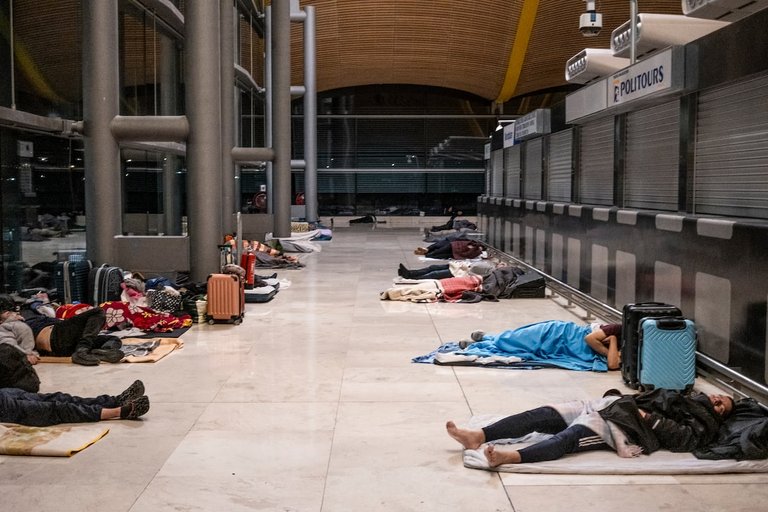The Latin American Report # 465

This interesting article from the Spanish news agency EFE reports on the concerning situation of many irregular migrants sleeping in Madrid's airport. Latin American migration to Europe—and particularly to Spain, a country historically linked to the region—does not usually get much coverage, so I thought it was important to highlight this piece of information in our report. First, a bit of context. According to the Spanish Refugee Aid Commission, Colombians and Venezuelans accounted for 63% of asylum seekers last year. After Mali, Peru is the country with the fourth highest number of nationals seeking asylum there. Further behind but also with a representative number of cases are Nicaragua, Honduras, and Ecuador, making a total of six Latin American nations in the top ten with the most applications. After the border "sealing" in the United States, Venezuelans—the largest group in the regional migration wave—are appealing even more strongly to the European route.
🔴El Aeropuerto de Barajas se ha convertido en un refugio para cerca de medio millar de personas sin hogar
— 24 horas de RNE (@24horas_rne) March 7, 2025
▪️Las administraciones no se ponen de acuerdo para encontrar alternativas
🗣️"A las 4:30 nos levantan y no nos permiten dormir más", nos cuenta David
🎙️@MariaAramendi https://t.co/hAJhIBwN4w pic.twitter.com/tRMUWCCsQF
For example, last January, the number of Venezuelans referring to Spain as their fleeing destination represented almost the same percentage that corresponded to the so-called American Dream in September 2024. There was a contraction of more than 50% in the latter case. A 33-year-old Venezuelan is considering relocating to Tenerife in the hope of obtaining a job profitable enough to send remittances to his young children and “save some money”. Since he has relatives on the other side of the sea waiting for him, he will probably not meet the same fate as the 500 or so homeless people sleeping in one of the four terminals of the Spanish capital's busy Adolfo Suárez airport. We spotlight vulnerable Latin American migrants here, but they are not the only group there. Some sleep under cardboard while waiting for a sustainable solution to regularization that has long eluded them. They cannot even sleep until dawn because they have to get up as soon as the cleaning staff arrives, and they face the latent threat of potential eviction.
 Source
SourceThe alternative to the airport, the only facility with the capacity to house so many desperate people who do not close at night in Madrid, is the freezing streets of this big city. In that situation is a 25-year-old Colombian who arrived in Spain two months ago on a tourist visa and is waiting to make money to buy a plane ticket and leave the country, although it is not clear to which destination. He says that in Europe, migrants are “worthless” if their status is not clear. A Venezuelan deserter from the Chavista Armed Forces obtained the critical Foreigner's Identity Number—a good step towards regularization—but he still has four months sleeping in the “Adolfo Suarez” airport, subjected to “humiliating and racist” treatment by airport security personnel. He plans to get “a stable job"—the dream of any migrant—to take his two children out of Venezuela. There is even a 30-year-old Argentinean among those staying overnight at the airport who arrived in Spain at the end of 2023 and is eager to reclaim his three children in Javier Milei's land.

